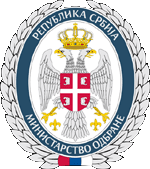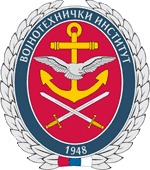|
REPUBLIC OF SERBIA MINISTRY OF DEFENCE
MINISTRY OF DEFENCE Material Resources Sector Defensive Technologies Department
|
independent power and energy sources for military applications
Vinča Institute of Nuclear Sciences, Department of Physical Chemistry, Belgrade, Serbia, gvozdentasic@vinca.rs Petar Z. laušević Vinča Institute of Nuclear Sciences, Department of Physical Chemistry, Belgrade, Serbia ivana m. perović Vinča Institute of Nuclear Sciences, Department of Physical Chemistry, Belgrade, Serbia snežana m. miulović Vinča Institute of Nuclear Sciences, Department of Physical Chemistry, Belgrade, Serbia vladimir m. nikolić Vinča Institute of Nuclear Sciences, Department of Physical Chemistry, Belgrade, Serbia milica p. marčeta kaninski Vinča Institute of Nuclear Sciences, Department of Physical Chemistry, Belgrade, Serbia
Abstract: This paper presents an overview of different military applications of fuel cells. Fuel cells offer significant reduction in weight, volume and cost compared to conventional power sources. Fuel cells are suited for silent operations because of their low heat and noise signatures. Recently fuel cells have found use in a variety of critical military applications such as: unmanned aerial and ground vehicles, soldier portable power, in silent camp, silent watch applications, in submarines, warships, trucks, cars, forklifts for defense depots and for portable and stationary power generation. Providing electrical power to meet the tactical requirements of the future battlefield will become a critical enabling technology. By installing fuel cell distributed generation systems, electrical sources can be placed right at the location, eliminating power lines that are vulnerable to accident or attack. Generating power on site at stateside and forward operating locations also dispenses with the need to deliver fuel. This paper will also present results in the development of a 5 kW µ-CHP (combined heat and power) system for supply of electrical and thermal energy, as well as other fuel cell systems being developed at the Hydrogen Еnergy Division of Vinca Institute of Nuclear Sciences. Keywords: hydrogen, fuel cells, power sources, µ-CHP systems
|
|||||
|
||||||

